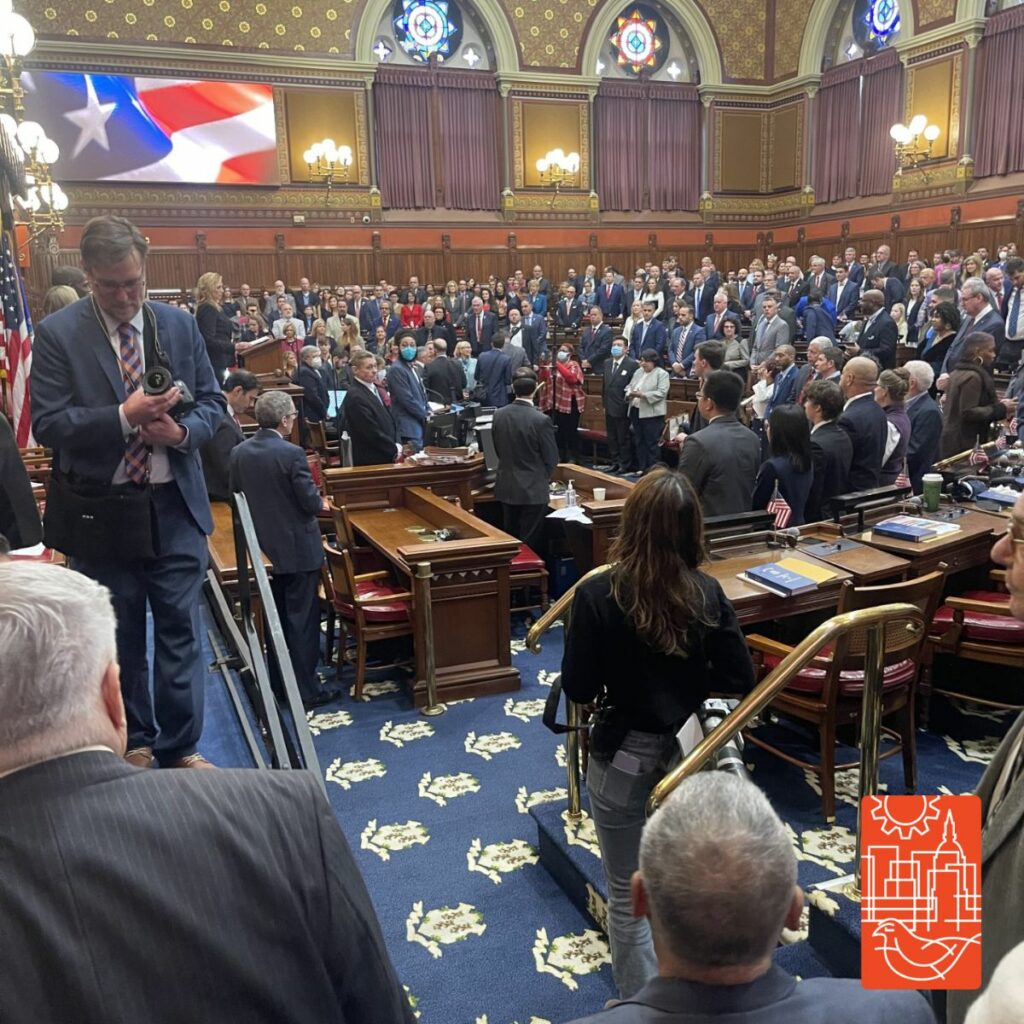April 2024 Legislative Update

Connecticut is facing a pressing challenge: a shortage of accessible and affordable childcare options. This issue isn’t just a matter of convenience; it’s a barrier to economic participation and it limits children’s access to opportunities for early growth and development. Importantly, while the issues facing Connecticut’s childcare system are complex and pervasive, they are particularly pronounced in under-resourced communities.
Accordingly, solving this complex problem requires a multifaceted approach and collaboration among various stakeholders, including quasi-public entities.
The involvement of quasi-public entities, like the Connecticut Health and Educational Facilities Authority, or CHEFA, is important due to their ability to operate efficiently and effectively in carrying out initiatives that support important statewide objectives, such as enhancing the quality of, and access to childcare throughout Connecticut. Quasi-public entities can help streamline processes, facilitate the effective allocation of resources, and ensure that initiatives are implemented with maximum impact.
Furthermore, quasi-public entities can leverage their expertise and resources to help drive collective action and facilitate the implementation of programing that reflects the complex nature of the many issues facing Connecticut’s childcare system. Programs like CHEFA’s proposed Early Childhood Education Tax Credit Program are an example of how quasi-public entities can play a valuable role in helping government agencies, businesses, childcare providers, and community organizations design and implement targeted and impactful programing to address one of Connecticut’s greatest challenges.
The proposed tax credit program would incentivize businesses to make contributions to the CHEFA Community Development Corporation in exchange for state tax credits. These contributions would in turn be used to provide financial assistance to licensed childcare centers, family childcare homes, and group childcare homes located in areas identified as childcare deserts. By providing financial assistance for construction, renovation, acquisition of facilities, equipment, and supplies, as well as working capital expenses, it addresses the diverse needs of childcare providers. Moreover, investments in these communities are essential for addressing systemic inequities in access to childcare, and by targeting areas designated as childcare deserts, the program aims to prioritize resources where they are most needed, ensuring that under-resourced communities receive the support they need.
The efficacy of any initiative aimed at tackling Connecticut’s childcare dilemma hinges on the collaboration of all stakeholders working to collectively develop and implement strategies that not only increase the availability of childcare but also enhance its quality and affordability. Government, employers, childcare providers, quasi-public entities, and other stakeholders must come together to develop and implement strategies that increase the availability, quality, and affordability of childcare throughout Connecticut.
CHEFA is ready and willing to work with all stakeholders to design, implement, and administer programming aimed at addressing Connecticut’s childcare crisis because through targeted efforts and collective impact, it is possible to break down barriers to access and create opportunities for all children and families to thrive.